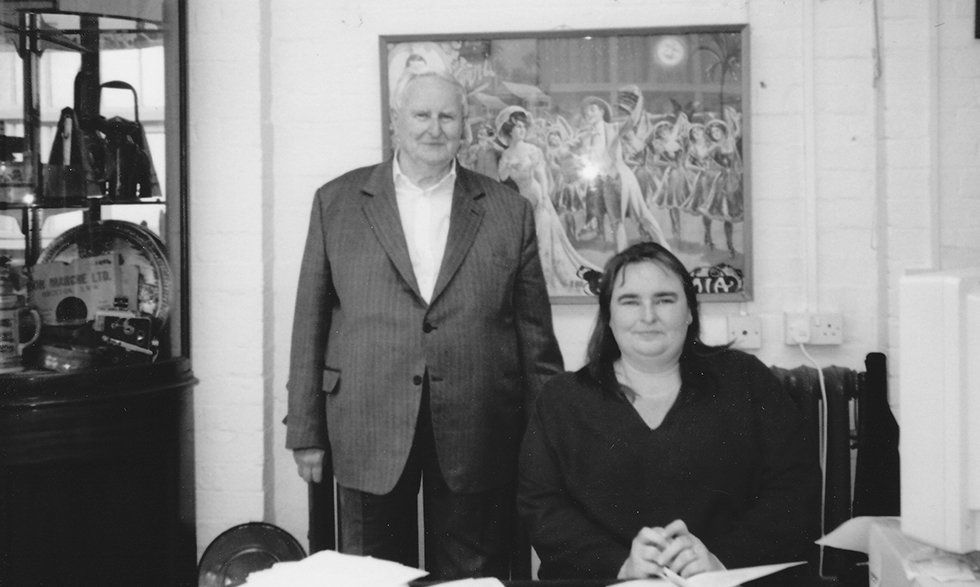An Interview with John Huntley

John Huntley’s career in the British film industry spanned the period 1945-1975 before running his own film consultancy business for a further thrity years . He is the author of the standard reference book British Film Music (1947) and The Technique of Film Music (1957). Shortly before his death in 2003 he was interviewed at his Victorian home in north London by Mrs. Cynthia E. Harris, a London based librarian originally from Rochester, New York, and a devotee of film music by British classical composers. Mrs. Harris wished to explore and write about Muir Mathieson’s career as a conductor, composer and educator. However, her ambition to produce a scholarly piece on the Scot did not reach maturity and Sheila Hetherington’s biography on Mathieson, A Life in Film Music (2006), emerged to overtake events. The consultation, recorded on cassette tape with Huntley’s permission, lasted about forty-five minutes, and focussed on the early part of his career with the J. Arthur Rank Organisation which began in earnest as an assistant to Mathieson shortly after VE Day 1945.
In this interview Huntley recollects Mathieson telling him how the music to the opening scene in Alexander Korda’s film
Things to Come (London Films, 1936) was recorded: ‘It was the old Scala Theatre, which was on Charlotte Street ... Muir said “We had on the stage the whole of the London Symphony Orchestra and we had a cinema screen so we could actually project the film onto the screen above us while we were doing it and then in the boxes around the theatre, in the theatre boxes, we had the London Symphony Choir, and I [Mathieson] and others of us were in the middle of it and we’d watch the screen and then we’d cued in the singers in the boxes and at a certain point, the orchestra welled up and swamped the choir singing the Christmas carols”, and of course, that’s exactly what happens in the film. And when we ran it the other day [at the Royal College of Music] it was quite amazing to see, just very primitive sort of facilities really by opera standards, it just worked like a dream.
Following the interview Huntley looked out from his amazing archive primary source information concerning Sir Arthur Bliss’s debut score for the cinema, including film stills from Things to Come and copies of gramophone records made by Bliss at Decca’s Thames Street studio in London during March 1935, one year in advance of the film premiere. He also provided from his archive an original edition of Music Parade ( Vol. 1, No. 11, 1948) containing his own biographical profile on Bliss which features here: Arthur Bliss by John Huntley
John Huntley’s biography will found online at Huntley Film Archives
A talk by Dr. N. William Snedden on the development of the music score to Things to Come, given at English Music Festival during May 2014, is also presented here with the author’s consent: Things to Come



